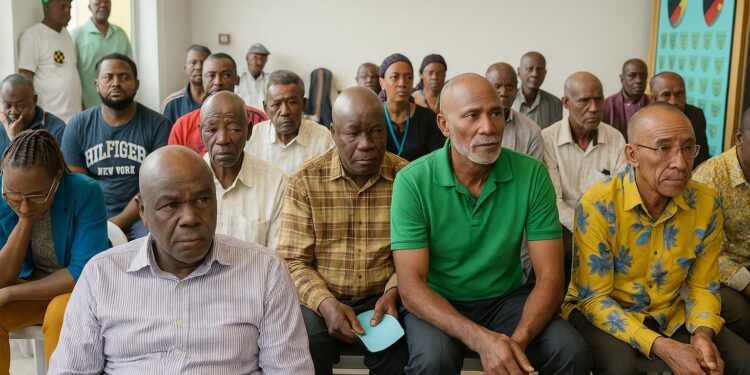Strategic Realignment in Congolese Handball
The unanimous decision taken on 18 August 2025 by the ordinary congress of the Congolese Handball Federation marks a watershed in the institutional architecture of Congolese sport. By withdrawing from the national Chamber of Conciliation and Arbitration in Sport, stakeholders signalled a strategic assertion of internal sovereignty.
Officials argue that the step is purely administrative, designed to streamline conflict-resolution pathways and avert what they describe as overlapping jurisdictions that created confusion during recent league disputes. The Ministry of Sports, represented at the congress, welcomed the move as an exercise in organisational clarity.
Background of the CCAS Relationship
Relations between Fécohand and the CCAS have oscillated since the chamber’s creation in 2012, when the Pan-African model of quasi-judicial sport bodies gained popularity. Congolese handball adopted the framework in 2014, but practical tensions surfaced over player eligibility rulings and appeals lodged by regional leagues.
Several club presidents claim that identical cases received divergent outcomes depending on whether they were first screened by Fécohand’s ethics commission or directly filed with the CCAS. According to investigative pieces in Les Dépêches de Brazzaville, inconsistency eroded confidence among athletes seeking rapid, predictable judgments.
Legal Dimensions and Statutory Reform
The congress consequently deleted article 34, the clause that previously mandated recourse to the CCAS before escalating matters to the African Handball Confederation or the International Handball Federation. Lawyers present emphasised that the deletion does not contravene national legislation on arbitration, which remains voluntary.
Fécohand is now drafting an enlarged disciplinary code incorporating clearer timelines for hearings and automatic mediation sessions. A draft seen by diplomatic observers stipulates a ten-day maximum for first-instance verdicts and introduces digital filing to reduce travel costs for clubs based in remote provinces.
Legal scholars at Marien-Ngouabi University note that the initiative fits within the 2021 national sport law, which encourages federations to develop self-regulatory mechanisms while respecting international commitments. They view the case as a precedent for other disciplines contemplating similar structural autonomy.
Domestic Sport Diplomacy Calculus
Inside Brazzaville’s sporting circles, the announcement has been interpreted through a geopolitical lens. Some analysts argue that reinforcing domestic adjudication bodies allows the Republic of Congo to negotiate multilaterally from a position of procedural coherence, particularly during forthcoming Central African handball integration talks.
Government advisers underline that sport remains a soft-power vector in Central Africa, where regional tournaments often precede formal diplomatic summits. Ensuring that disputes are settled swiftly inside national institutions may, they contend, project an image of administrative maturity welcomed by partners and investors.
Critics, however, caution that concentrating jurisdiction within a federation could expose athletes to perceived bias. An online editorial in Jeune Afrique suggested that smaller clubs might lack leverage in internal tribunals dominated by long-standing executives, though the piece acknowledged recent inclusion of player representatives as a safeguard.
Continental and Global Echoes
The CAHB headquartered in Abidjan signalled acceptance of the structural change, stating through its legal director that ‘each member federation is free to organise dispute resolution provided access to appeal at continental level is safeguarded.’ The International Handball Federation has not issued formal comment yet.
Regional observers recall that similar realignments occurred in Senegalese football and Kenyan athletics without disrupting qualification processes. The precedent suggests that as long as procedural fairness is demonstrable, international bodies prioritize stability of calendar over the locus of first-instance arbitration.
Nonetheless, sponsorship contracts often reference the CCAS for emergency injunctions. Fécohand’s legal team is therefore negotiating with headline partners such as the state-owned oil major SNPC to amend clauses, ensuring that commercial disputes will now fall under the federation’s revised arbitral commission.
Expert Voices on Conflict Resolution
Interviewed by this magazine, Sports Minister adviser Chaptellain Ngouama insisted that ‘the government’s role is not to interfere but to accompany.’ He emphasised investment in arbitration training programmes co-funded by the Olympic Committee to enhance the credibility of the federation’s in-house judiciary.
Professor Mélanie Ananga, a sports-law expert based in Paris, views the development as part of a continental trend toward ‘legal localisation’ after high-profile cases at the Court of Arbitration for Sport in Lausanne exposed financial hurdles for African athletes. She nonetheless warns of reputational stakes.
Path Toward Upcoming Competitions
Fécohand is expected to finalise its new codex before the national championship draw in February 2026. Organisers hope that a clarified judicial ladder will prevent delays that last season postponed the play-off final by three weeks, affecting international call-ups to the Brazzaville Games.
Whether the reform thrives will depend on transparent reporting of rulings and continuous dialogue with athletes. For now, the Brazzaville handball community projects cautious optimism, casting its recalibrated statutes as both a legal instrument and a diplomatic calling card ahead of continental events.












































